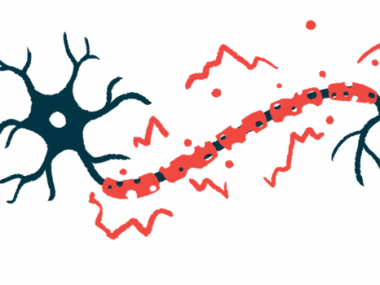Long-term Treatment with EPI-743 May Prevent FA Progression in Patients, Phase 2 Results Show
Written by |

Long-term use of EPI-743 (vatiquinone), an investigational therapy being developed by BioElectron, can improve neurological function and prevent disease progression in Friedreich’s ataxia (FA) patients, results from a Phase 2 clinical trial show.
Trial data was reported in the study, “Double-blind, randomized and controlled trial of EPI-743 in Friedreich’s ataxia,” in the journal Neurodegenerative Disease Management.
EPI-743 is an oral small molecule that belongs to the para-benzoquinone class, which are potent antioxidant compounds. Although it does not target any specific biomarker of FA, EPI-743 can regulate the response of key enzymes involved in the regulation of oxidative stress, inflammation, and cell death.
In 2014, EPI-743 was granted orphan drug designation and fast track status by the U.S. Food and Drug Administration for the treatment of Friedreich’s ataxia. These designations are expected to support and expedite its clinical development and regulatory review.
The randomized, placebo-controlled Phase 2 trial (NCT01728064) tested the safety and effectiveness of EPI-743 as a treatment for FA. It enrolled 63 adults with genetically confirmed Friedreich’s ataxia at three U.S. centers — Children’s Hospital of Philadelphia; University of California, Los Angeles; and University of South Florida in Tampa.
Participants were randomly assigned to receive 200 or 400 mg of EPI-743, given in capsules, or a placebo three times daily.
The Friedreich’s Ataxia News forums are a place to connect with other patients, share tips and talk about the latest research. Check them out today!
After six months of treatment, patients in the placebo group were again randomized to start treatment with either 200 or 400 mg of EPI-743, whereas the remaining patients continued taking their previously assigned EPI-743 doses for an additional six months.
Given the lack of safety events reported in patients treated with the lowest tested dose, the researchers extended EPI-743 treatment for one more year in an open-label phase, during which all participants took 400 mg of EPI-743 three times daily.
The investigational therapy was found to be safe and well-tolerated, with no reported serious treatment-related adverse events or toxicity. The most frequent adverse events were impaired taste (dysgeusia), increased weight, and indigestion, all of which occurred in fewer than five patients in either treatment group over the two years of treatment.
Data collected at the end of the initial six months failed to reveal any significant differences between those who took EPI-743 or placebo.
The treatment seemed to have no significant impact on any of the evaluated clinical parameters including neurological function measured by the Friedreich’s ataxia rating scale (FARS-Neuro), visual acuity, the 25-foot walk test, the nine-hole peg test, or cardiac function.
Given these disappointing results, the researchers performed a new post-hoc analysis, including only patients who had shown improvements of at least three and five points per year on the FARS-Neuro. This threshold is indicative of what is generally experienced by patients over one to two years of natural disease progression.
Regardless of the dose taken, 66% of all patients on EPI-743 experienced an improvement of three points or more in FARS-Neuro scores versus 43% of the patients in the placebo group. About 64% of patients taking 200 mg of EPI-743 improved by five points or more in the FARS-Neuro score, compared with 33% in the placebo group.
In addition, significantly fewer patients in the EPI-743 groups experienced a three-point decrease in FARS-Neuro scores than the placebo group over the same period, 5% versus 38%.
To better understand the long-term effect of the therapy, the researchers compared the results collected after two years of EPI-743 treatment with data from a disease natural history database.
They found that while patients in the natural history group had a mean FARS-Neuro decrease of 4.8 points over two years, patients treated with EPI-743 had a 1.8-point improvement.
Supported by this finding, the researchers believe that treatment with EPI-743 is “associated with a statistically significant improvement in neurological function and disease progression,” relative to the natural course of FA.
Additional studies with longer placebo-controlled periods are still needed to better evaluate the long-term impact of EPI-743 over the course of the disease.





